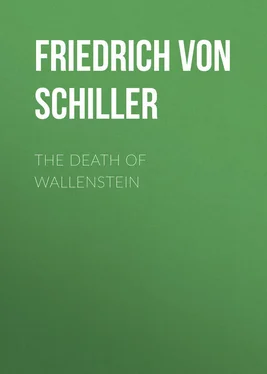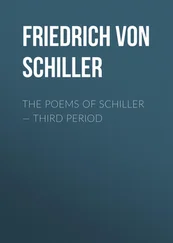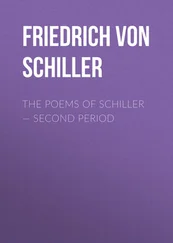Friedrich Schiller - The Death of Wallenstein
Здесь есть возможность читать онлайн «Friedrich Schiller - The Death of Wallenstein» — ознакомительный отрывок электронной книги совершенно бесплатно, а после прочтения отрывка купить полную версию. В некоторых случаях можно слушать аудио, скачать через торрент в формате fb2 и присутствует краткое содержание. Жанр: literature_18, Драматургия, foreign_antique, foreign_prose, foreign_dramaturgy, на английском языке. Описание произведения, (предисловие) а так же отзывы посетителей доступны на портале библиотеки ЛибКат.
- Название:The Death of Wallenstein
- Автор:
- Жанр:
- Год:неизвестен
- ISBN:нет данных
- Рейтинг книги:4 / 5. Голосов: 1
-
Избранное:Добавить в избранное
- Отзывы:
-
Ваша оценка:
- 80
- 1
- 2
- 3
- 4
- 5
The Death of Wallenstein: краткое содержание, описание и аннотация
Предлагаем к чтению аннотацию, описание, краткое содержание или предисловие (зависит от того, что написал сам автор книги «The Death of Wallenstein»). Если вы не нашли необходимую информацию о книге — напишите в комментариях, мы постараемся отыскать её.
The Death of Wallenstein — читать онлайн ознакомительный отрывок
Ниже представлен текст книги, разбитый по страницам. Система сохранения места последней прочитанной страницы, позволяет с удобством читать онлайн бесплатно книгу «The Death of Wallenstein», без необходимости каждый раз заново искать на чём Вы остановились. Поставьте закладку, и сможете в любой момент перейти на страницу, на которой закончили чтение.
Интервал:
Закладка:
[To the PAGE, – who here enters.
The Swedish officer? Well, let him enter.
[The PAGE exit, WALLENSTEIN fixes his eye in deep thought on the door.
Yet, it is pure – as yet! – the crime has come
Not o'er this threshold yet – so slender is
The boundary that divideth life's two paths.
SCENE V
WALLENSTEIN and WRANGEL.
Your name is Wrangel?
Gustave Wrangel, General
Of the Sudermanian Blues.
It was a Wrangel
Who injured me materially at Stralsund,
And by his brave resistance was the cause
Of the opposition which that seaport made.
It was the doing of the element
With which you fought, my lord! and not my merit,
The Baltic Neptune did assert his freedom:
The sea and land, it seemed were not to serve
One and the same.
You plucked the admiral's hat from off my head.
I come to place a diadem thereon.
And where are your credentials
Come you provided with full powers, sir general?
There are so many scruples yet to solve —
An able letter! Ay – he is a prudent,
Intelligent master whom you serve, sir general!
The chancellor writes me that he but fulfils
His late departed sovereign's own idea
In helping me to the Bohemian crown.
He says the truth. Our great king, now in heaven,
Did ever deem most highly of your grace's
Pre-eminent sense and military genius;
And always the commanding intellect,
He said, should have command, and be the king.
Yes, he might say it safely. General Wrangel,
[Taking his hand affectionately.
Come, fair and open. Trust me, I was always
A Swede at heart. Eh! that did you experience
Both in Silesia and at Nuremberg;
I had you often in my power, and let you
Always slip out by some back door or other.
'Tis this for which the court can ne'er forgive me,
Which drives me to this present step: and since
Our interests so run in one direction,
E'en let us have a thorough confidence
Each in the other.
Confidence will come
Has each but only first security.
The chancellor still, I see, does not quite trust me;
And, I confess – the game does not lie wholly
To my advantage. Without doubt he thinks,
If I can play false with the emperor,
Who is my sovereign, I can do the like
With the enemy, and that the one, too, were
Sooner to be forgiven me than the other.
Is not this your opinion, too, sir general?
I have here a duty merely, no opinion.
The emperor hath urged me to the uttermost
I can no longer honorably serve him.
For my security, in self-defence,
I take this hard step, which my conscience blames.
That I believe. So far would no one go
Who was not forced to it.
[After a pause.
What may have impelled
Your princely highness in this wise to act
Toward your sovereign lord and emperor,
Beseems not us to expound or criticise.
The Swede is fighting for his good old cause,
With his good sword and conscience. This concurrence,
This opportunity is in our favor,
And all advantages in war are lawful.
We take what offers without questioning;
And if all have its due and just proportions —
Of what then are ye doubting? Of my will?
Or of my power? I pledged me to the chancellor,
Would he trust me with sixteen thousand men,
That I would instantly go over to them
With eighteen thousand of the emperor's troops.
Your grace is known to be a mighty war-chief,
To be a second Attila and Pyrrhus.
'Tis talked of still with fresh astonishment,
How some years past, beyond all human faith,
You called an army forth like a creation:
But yet —
But yet?
But still the chancellor thinks
It might yet be an easier thing from nothing
To call forth sixty thousand men of battle,
Than to persuade one-sixtieth part of them —
What now? Out with it, friend?
To break their oaths.
And he thinks so? He judges like a Swede,
And like a Protestant. You Lutherans
Fight for your Bible. You are interested
About the cause; and with your hearts you follow
Your banners. Among you whoe'er deserts
To the enemy hath broken covenant
With two lords at one time. We've no such fancies.
Great God in heaven! Have then the people here
No house and home, no fireside, no altar?
I will explain that to you, how it stands:
The Austrian has a country, ay, and loves it,
And has good cause to love it – but this army
That calls itself the imperial, this that houses
Here in Bohemia, this has none – no country;
This is an outcast of all foreign lands,
Unclaimed by town or tribe, to whom belongs
Nothing except the universal sun.
And this Bohemian land for which we fight
Loves not the master whom the chance of war,
Not its own choice or will, hath given to it.
Men murmur at the oppression of their conscience,
And power hath only awed but not appeased them.
A glowing and avenging memory lives
Of cruel deeds committed on these plains;
How can the son forget that here his father
Was hunted by the bloodhound to the mass?
A people thus oppressed must still be feared,
Whether they suffer or avenge their wrongs.
But then the nobles and the officers?
Such a desertion, such a felony,
It is without example, my lord duke,
In the world's history.
They are all mine —
Mine unconditionally – mine on all terms.
Not me, your own eyes you must trust.
[He gives him the paper containing the written oath. WRANGEL reads
it through, and, having read it, lays it on the table, – remaining
silent.
So then;
Now comprehend you?
Comprehend who can!
My lord duke, I will let the mask drop – yes!
I've full powers for a final settlement.
The Rhinegrave stands but four days' march from here
With fifteen thousand men, and only waits
For orders to proceed and join your army.
These orders I give out immediately
We're compromised.
Интервал:
Закладка:
Похожие книги на «The Death of Wallenstein»
Представляем Вашему вниманию похожие книги на «The Death of Wallenstein» списком для выбора. Мы отобрали схожую по названию и смыслу литературу в надежде предоставить читателям больше вариантов отыскать новые, интересные, ещё непрочитанные произведения.
Обсуждение, отзывы о книге «The Death of Wallenstein» и просто собственные мнения читателей. Оставьте ваши комментарии, напишите, что Вы думаете о произведении, его смысле или главных героях. Укажите что конкретно понравилось, а что нет, и почему Вы так считаете.












